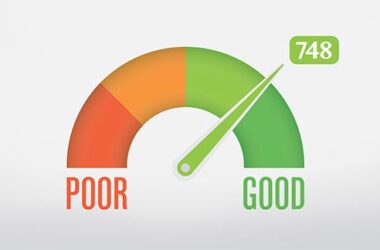In almost all sectors of life and business, there are many misconceptions within. Yes, and in dealing with insurance, there are so many misconceptions about insurance covers and policies. Well, if you’re one who is a believer of misconceptions, then this article is designed to correct that. In this article, you will be reading about common misconceptions about insurance and the true facts. You don’t want to miss reading this, trust me!
Common Misconceptions About Insurance
Below are outlined common misconceptions about insurance. Let’s check them out:
Insurance is Only for the Wealthy
Contrary to popular belief, insurance isn’t reserved solely for the affluent. It’s a financial safety net accessible to individuals from all walks of life. Whether you’re a student, a young professional, or a retiree, insurance offers peace of mind by safeguarding against unexpected expenses and liabilities.
READ ALSO: Checkout Top Factors That Influence Car Insurance Premiums
Insurance is a Waste of Money
Some view insurance premiums as a waste money, but in reality, they’re investments in protection. Consider it in a similar way to purchasing a security system for your home—you hope you’ll never need it, but it’s indispensable in safeguarding your assets and well-being.
Insurance Covers Everything
While insurance provides comprehensive coverage for many risks, it’s not a one-size-fits-all solution. Policies vary in scope and may exclude certain events or circumstances. Understanding the specifics of your coverage ensures you’re adequately protected and prevents surprises during claims.
Young and Healthy Individuals Don’t Need Insurance
No doubt, youth and good health are blessings, but they don’t guarantee immunity from accidents or illnesses. Insurance is about preparing for the unexpected, regardless of age or physical condition. Securing coverage early in life often means lower premiums and ensures financial stability in the face of unforeseen challenges.
Insurance Companies Always Deny Claims
While claim denials occur, they’re not as commonplace as often assumed. Insurance companies aim to fulfill their obligations and maintain customer satisfaction. Honesty, accuracy, and timely submission of claims increase the likelihood of approval and swift reimbursement.
Only Breadwinners Need Life Insurance
Life insurance isn’t solely for primary income earners. It provides financial support to dependents in the event of a policyholder’s demise, ensuring their well-being and stability. Whether you contribute financially or provide caregiving, life insurance offers invaluable protection for your loved ones’ future.
Insurance Is Too Complicated to Understand
Many resources, including insurance agents, online tools, and educational materials, are available to demystify the process. Taking the time to learn about different policy options empowers you to make informed decisions tailored to your needs.
Insurance Is Only Necessary for Property Owners
Renters, too, benefit from insurance coverage. While landlords may have policies covering the physical structure, they typically don’t extend to tenants’ personal belongings or liability protection. Renter’s insurance fills this gap, offering coverage for possessions and safeguarding against liability claims.
Insurance Agents Only Care About Making Sales
Reputable insurance agents prioritize client well-being over sales quotas. Their role extends beyond selling policies to providing guidance, assessing risks, and offering personalized solutions. Building trust and fostering long-term relationships are integral to their success and credibility.
Insurance Is Expensive and Unaffordable
The cost of insurance varies depending on factors such as coverage type, deductible, and risk profile. While premiums may seem daunting, they’re often manageable when weighed against the potential financial ramifications of being uninsured. Moreover, comparison shopping and exploring discounts can help find affordable options without sacrificing coverage.
The Fact About Choosing An Insurance Cover
When selecting an insurance policy, thorough research and careful consideration are paramount. Evaluate your needs, assess potential risks, and compare quotes from multiple providers. Understand the terms and conditions of each policy to ensure it aligns with your priorities and offers adequate protection.
Is Getting An Insurance Cover Worth It?
In my own opinion, obtaining insurance coverage is not just worthwhile—it’s essential. You see, insurance provides invaluable peace of mind and financial security in an unpredictable world.
FAQs
Is insurance necessary for everyone?
Yes, insurance is crucial for everyone, as it provides financial protection against unforeseen events and liabilities.
How can I lower my insurance premiums?
You can lower your insurance premiums by maintaining a good credit score, bundling policies, increasing deductibles, and exploring available discounts.
What happens if I don’t have insurance?
Without insurance, you risk facing significant financial losses in the event of accidents, illnesses, or property damage, as you would be responsible for covering expenses out of pocket.
Is it possible to change my insurance coverage after purchasing a policy?
Yes, you can typically adjust your insurance coverage by contacting your provider or agent to make changes to your policy according to your evolving needs.
How do I know if I have enough insurance coverage?
Assess your current financial situation, evaluate potential risks, and consider your future needs to determine if your insurance coverage adequately protects you and your assets.
Conclusion
Debunking common misconceptions about insurance is crucial for fostering a better understanding of its importance and benefits.So, before spreading false information about insurance, do well to get the facts correct.




